Welcome to the world of Odoo ERP and the transformative power of customization. In this blog post, we’ll explore how tailoring Odoo modules can seamlessly align this Enterprise Resource Planning (ERP) system with your unique business needs.
First, let’s unravel the essence of Odoo ERP. Odoo is a comprehensive business management software that encompasses a wide array of modules. Each module is designed to address specific aspects of your organization’s operations. From finance and inventory management to sales, marketing, and beyond, Odoo ERP offers a holistic approach to streamlining your business processes.
While Odoo ERP modules provide a solid foundation, customization takes your ERP experience to the next level. Every business is distinct, with its own set of challenges, workflows, and objectives. That’s where customization comes in as the hero of your ERP story. It allows you to tailor Odoo modules to suit your precise requirements, ensuring that the ERP becomes a seamless extension of your organization.
In the upcoming sections of this blog post, we’ll delve deep into the world of Odoo customization. You’ll discover how customization empowers you to:
- Fine-tune Odoo modules to match your unique business processes, eliminating inefficiencies and enhancing productivity.
- Unlock the full potential of Odoo by adding custom features and functionalities that cater specifically to your needs.
- Seamlessly integrate Odoo with other software and systems, creating a unified ecosystem that enhances data flow and decision-making.
- Gain a competitive edge by adapting to evolving market trends and customer demands through agile customization.
- Navigate the customization process effectively, from identifying customization opportunities to implementation and ongoing support.
By the end of this blog post, you’ll have a comprehensive understanding of how Odoo customization can revolutionize your ERP experience, enabling you to streamline operations, boost efficiency, and drive growth. Uncover the limitless possibilities of tailoring Odoo modules to your business’s unique requirements.
Odoo Modules
In our quest to master the art of customizing Odoo modules, it’s essential to first lay a solid foundation by understanding the very building blocks of the Odoo ERP system. Let’s dive into the world of Odoo modules and unravel their significance.
At its core, Odoo ERP operates on a modular structure. But what exactly are Odoo modules? Think of them as the versatile components that make up the ERP ecosystem. Each module serves a specific purpose, focusing on distinct business functions. Whether it’s managing your accounting, handling HR tasks, tracking inventory, or even orchestrating your marketing campaigns, there’s an Odoo module tailored to the task.
The Role of Modules in Odoo ERP
Odoo modules are the engine that drives the ERP system. They are the functional units responsible for executing various tasks within your organization. These modules are designed to be seamlessly integrated. They create a cohesive environment where data flows effortlessly between them. This interconnectedness enables real-time decision-making, resource optimization, and overall efficiency.
Importance of Customization in Module Selection
Now, let’s address a critical aspect of Odoo module selection – customization. While Odoo modules provide a robust framework for business operations, they are not one-size-fits-all solutions. Every business is unique, with its own set of processes and requirements. This is where the power of customization comes into play.
The importance of customization lies in the ability to cherry-pick and fine-tune Odoo modules to align with your organization’s specific needs. It’s like tailoring a suit to fit perfectly; customization ensures that the ERP system becomes an exact match for your business processes. This not only eliminates unnecessary complexities but also enhances productivity by providing your team with tools that resonate with their daily tasks.
The Many Benefits of Odoo Customization
Now that we’ve laid the groundwork by understanding Odoo modules and their pivotal role in the ERP landscape, it’s time to delve into the compelling advantages that Odoo customization brings to the table. These benefits are not mere perks; they are the driving force behind the decision to tailor Odoo modules to your business’s unique needs.
Improved Efficiency and Productivity
Imagine an ERP system that seamlessly aligns with your workflows, automating repetitive tasks and streamlining complex processes. Odoo customization makes this vision a reality. By fine-tuning modules to match your business’s specific requirements, you empower your team with tools that enhance their efficiency and productivity. No more wasted time on workarounds or struggling with rigid software. Instead, your workforce can focus on what truly matters – driving your business forward.
Cost Reduction Through Tailored Solutions
One of the standout benefits of Odoo customization is the potential for cost reduction. Generic ERP systems often come with features and functionalities that you may never use, yet you’re still paying for them. With customization, you have the freedom to eliminate the bloat and create a lean, cost-effective ERP environment. By investing in precisely what your business needs and nothing more, you can optimize your budget and allocate resources strategically.
Enhanced User Experience
User experience matters more than ever in today’s tech-savvy world. Employees expect software that is intuitive, user-friendly and aligns with their daily tasks. Off-the-shelf ERP solutions may fall short in this aspect. However, when you customize Odoo modules, you design an ERP system that caters to your team’s needs. This tailored approach results in an enhanced user experience, reducing training time, minimizing errors, and fostering greater user adoption.
Competitive Advantage
In a fiercely competitive business landscape, any edge you can gain is invaluable. Odoo customization provides you with a potent tool for differentiating your business from the competition. Your ability to adapt, innovate, and respond swiftly to market changes becomes a competitive advantage. Whether it’s delivering personalized customer experiences or rapidly scaling your operations, customization empowers you to stay ahead in the race.
As we explore the benefits of Odoo customization, keep these advantages in mind as compelling reasons to embark on the customization journey. The next sections will delve deeper into practical insights and strategies for harnessing these benefits and transforming your Odoo ERP into a tailored powerhouse for your business’s success.
Identifying Business Needs
Now that we understand the significant benefits of Odoo customization, it’s time to embark on the journey of tailoring Odoo modules to your specific business requirements. This begins with a critical phase – identifying your business needs.
Assessing Your Company’s Unique Requirements
Every business is distinctive in its own right. Your workflows, processes, and objectives are unlike any other. Therefore, it’s imperative to assess your company’s unique requirements comprehensively. Start by conducting a thorough audit of your existing processes and workflows. Identify pain points, bottlenecks, and areas where efficiency can be improved. Consider the specific challenges your industry faces and how a customized Odoo ERP can address them.
Additionally, don’t overlook future growth and scalability. Your customization plan should not only cater to your current needs but also accommodate future expansion and evolving business dynamics.
Involving Key Stakeholders in the Customization Process
Customizing Odoo modules is not a solitary endeavor. It’s a collaborative effort that involves key stakeholders within your organization. These stakeholders may include department heads, IT professionals, end-users, and decision-makers. Each group brings valuable insights and perspectives to the table.
Engage in open and transparent communication with your stakeholders. Gather their input on pain points, wish lists, and their vision for an ideal ERP system. By involving the people who will be directly impacted by the customization, you ensure that the result aligns with their needs and expectations.
Creating a Customization Plan Based on Business Needs
With a clear understanding of your business’s unique requirements and input from key stakeholders, it’s time to create a detailed customization plan. This plan serves as your roadmap for tailoring Odoo modules effectively.
Outline the specific modules that require customization and define the scope of these customizations. Prioritize customization tasks based on their impact on your business operations. Consider factors like ROI, immediate business needs, and long-term goals.
Additionally, set clear objectives and metrics to measure the success of your customization efforts. Whether it’s improving order processing times, enhancing customer interactions, or optimizing inventory management, your plan should have well-defined goals.
In the upcoming sections, we will explore the technical aspects of Odoo customization and provide actionable insights to guide you through the process. Remember, a well-thought-out customization plan based on your business needs is the foundation for a successful Odoo ERP transformation.
Types of Odoo Customizations
When it comes to customizing Odoo modules to align your ERP with your business’s unique needs, there are several approaches you can take. Understanding these different types of customizations is crucial to making informed decisions about how to tailor your Odoo ERP effectively.
Customizing Existing Modules
One of the most common forms of Odoo customization involves tailoring existing modules to better suit your business processes. Odoo’s extensive library of modules covers a wide range of functionalities, from CRM and inventory management to accounting and HR. However, these modules are designed to be flexible and adaptable.
Customizing existing modules allows you to:
- Modify fields and data structures to capture specific information relevant to your industry.
- Add custom validation rules and workflows to match your unique business processes.
- Incorporate new features and functionalities to enhance module capabilities.
This type of customization is particularly beneficial when you want to leverage Odoo’s core modules while fine-tuning them to your exact specifications.
Developing New Modules
In some cases, your business needs may extend beyond the capabilities of existing Odoo modules. When this happens, developing entirely new modules tailored to your requirements becomes necessary. Custom module development allows you to create functionalities from scratch, ensuring they seamlessly integrate with your ERP.
Benefits of developing new modules include:
- Addressing highly specific business needs that existing modules cannot fulfill.
- Achieving a competitive advantage by implementing unique features.
- Ensuring compatibility with future Odoo updates and changes.
While this approach may require more development effort, it offers unparalleled flexibility to cater to your business’s exact requirements.
Integrating Third-Party Solutions
Odoo’s open architecture allows for seamless integration with third-party solutions. This can be especially useful when your business relies on specialized software or tools that are not available within the standard Odoo ecosystem. By integrating third-party solutions, you can harness the power of best-of-breed software alongside Odoo’s robust ERP capabilities.
Common integrations include:
- Payment gateways
- E-commerce platforms
- Marketing automation tools
- Data analytics software
- Shipping and logistics systems
Integrating these solutions ensures that your Odoo ERP becomes a central hub for all your business operations.
User Interface Customization
User experience is a critical aspect of any ERP system. Odoo provides tools to customize the user interface (UI) to match your brand’s aesthetics and streamline user workflows. UI customization includes:
- Designing user-friendly dashboards and menus.
- Adapting color schemes and branding elements.
- Rearranging screen layouts for optimal usability.
- Creating custom reports and data visualizations.
An intuitive and visually appealing UI enhances user satisfaction and productivity.
Data Migration and Transformation
When transitioning to Odoo or customizing your existing Odoo instance, data migration and transformation play a vital role. This involves:
- Extracting data from legacy systems.
- Cleaning and restructuring data to fit Odoo’s format.
- Importing data into Odoo databases
Data migration ensures that historical information and records are seamlessly transferred to your customized Odoo ERP, preserving business continuity.
Best Practices for Odoo Customization
Customizing Odoo modules is a strategic move to align your ERP system with your business’s unique requirements. However, to ensure the long-term success and sustainability of these customizations, it’s essential to follow best practices that promote compatibility, transparency, and expertise.
One of the key challenges in Odoo customization is keeping custom modules and configurations up-to-date with Odoo’s evolving ecosystem. Odoo regularly releases updates and new versions, which may include bug fixes, security enhancements, and new features. To ensure your customized ERP remains compatible, consider these practices:
- Regular Testing: Before applying Odoo updates, thoroughly test your custom modules in a development environment that mirrors your production setup. This allows you to identify and resolve any compatibility issues in advance.
- Continuous Monitoring: Stay informed about Odoo’s release schedule and roadmap. Odoo often provides release notes and documentation detailing changes. Monitor these updates to anticipate how they might affect your customizations.
- Engage with Odoo Community: Participate in the Odoo community, forums, and mailing lists. Engaging with the Odoo community can provide valuable insights into upcoming changes and potential challenges.
- Partner with Experts like Confianz: Consider partnering with an Odoo-certified development partner. We are well-equipped to handle updates and ensure your customizations remain compatible with the latest Odoo versions.
Conclusion
In conclusion, Odoo customization is the compass that guides your ERP system toward alignment with your business’s unique needs and objectives. The importance of customizing Odoo modules cannot be overstated. It enables your organization to harness the full potential of this robust ERP platform, turning it into a tailor-made solution that optimizes processes, enhances productivity, and drives growth.
As the business landscape continues to evolve, the need for flexibility and agility in your ERP system becomes paramount. Odoo customization empowers you to stay ahead of the curve, adapting swiftly to changing market dynamics, customer preferences, and industry trends. It’s the key to unlocking a competitive advantage that propels your business towards success.
We encourage businesses to explore the vast opportunities that Odoo customization offers. Whether it’s streamlining workflows, automating tasks, or creating unique modules that cater to your specific requirements, customization empowers you to achieve your business goals with precision.
At Confianz, we understand the significance of Odoo customization, and our team of experts is here to assist you every step of the way. We specialize in tailoring Odoo ERP to suit your organization’s distinct needs.
If you’re ready to embark on a journey towards a more efficient, productive, and adaptable ERP system, don’t hesitate to reach out to us. Contact our Odoo customization services team, and let’s transform your ERP into a strategic asset that drives your business forward.
Customize Odoo, tailor your success – that’s the Confianz way.








